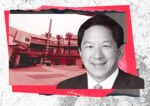Trending
Urban Standard wants to rescue property owners from high interest rates
Seith Weissman’s firm launches $100M gap financing play, citing 30% holes in capital stacks

As interest rates rise and banks pull back on lending, real estate owners with loans coming due find themselves in a bind.
Last year’s dramatic rate hikes — the steepest in a single year since 1980 — mean that some owners are being forced to put more money into their projects after a refinancing, rather than taking money out.
Seth Weissman wants to capitalize on this misalignment. His lender and development firm, Urban Standard Capital, started a new venture to deploy $100 million in gap financing, including senior stretch financing, mezzanine and preferred equity. Weissman said he is increasingly noticing financing gaps between 20 to 30 percent in capital stacks because of rising interest rates.
Urban Standard is one of a growing number of firms stepping in to provide gap financing or rescue capital. Last year, Carroll Organization’s Patrick Carroll said he’s looking to deploy $250 million to troubled apartment owners across the Sunbelt. Former WeWork executive Arash Gohari’s 27 Capital recently teamed up with Dwight Mortgage Trust to offer capital to troubled owners.
At the onset of the pandemic, rescue and distress funds popped up by the boatload, all touting their “dry powder” and “war chests.” But many of those funds quietly disappeared or underwhelmed the market because of government stimuluses and record-low interest rates.
Now things are different.
Higher rates have increased the cost of borrowing money. Real estate owners are facing new challenges with their debt-service coverage ratios, which are used to measure a borrower’s ability to pay their debts. When borrowers run into trouble with their ratio, senior lenders are unlikely to help, leaving a need for new sources of capital, according to Weissman.
Adding to this problem, banks are hesitant to offer loans at higher leverage points. And some banks are pulling back on real estate lending altogether as they assess the market.
Weissman said some banks are dealing with issues on their existing portfolios after originating loans to borrowers at lower rates without a plan to grow net operating income. Now rates are higher, but operating income has remained the same, leading to financing shortfalls, he said.
Alternative lenders, or private lenders, are seeking to position themselves as a source of capital by offering mezzanine or preferred equity. Some borrowers are also looking for short-term bridge loans until the market stabilizes.
But alternative lenders are not always a borrower’s first choice. And for good reason.
Alternative lenders are known for charging higher rates and being more aggressive in pursuing foreclosures and default interest. Some distressed lenders in New York City will buy troubled debt with the intent of accumulating default interest at the legal limit of 24 percent, making it more difficult, or in some cases impossible, to refinance.
“Often, you feel like you need to take a shower after leaving the room with many private lenders,” says Weissman.
Urban Standard, which has over $600 million of real estate equity and debt investments, is known in New York for providing condo inventory and bridge loans. Early last year, it provided a $52 million loan for a 14-unit condo building at 199 Chrystie Street and has become one of the more active lenders in the Hamptons. It has also not been afraid to foreclose on property owners with defaulted loans.
To be sure, rising interest rates have caused already costly preferred equity and mezzanine loans offered by Urban Standard and others to move to even higher rates. But Weissman says it beats the alternative of either selling the property or asking investors to cough up more money — a difficult conversation as Wall Street braces for a recession.
“Investors are getting calls across the board,” said Weissman.




